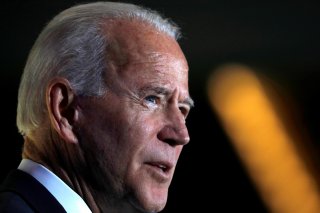Joe Biden Won't Commit To That New Stimulus Check Just Yet
The Biden Administration has remained noncommittal with regards to the possibility of a fourth-round of direct federal stimulus payments. The IRS has now sent out over 165 million payments to eligible Americans, totaling over $388 billion.
The Biden Administration has remained noncommittal with regards to the possibility of a fourth-round of direct federal stimulus payments. The IRS has now sent out over 165 million payments to eligible Americans, totaling over $388 billion.
These payments, along with the previous two rounds of federal stimulus payments as well as other government relief measures such as expanded unemployment benefits, have been pivotal for generating an economic recovery. The third-round of payments, which included larger payments and which coincided with greater rates of vaccination and the reopening of many businesses across the country, has been particularly impactful, helping to boost both consumer spending and household income.
Even so, the Biden administration has not indicated that it is intent on pushing for a further round of stimulus payments. In a recent speech to Congress, President Biden acknowledged the positive impacts of stimulus payments even while he made no mention of any plans for future payments. The White House in general been relatively silent on the issues, with White House press secretary commenting that the issue of a fourth stimulus payment would be left up to Congress, and that such payments would be expensive.
Additional stimulus payments, and monthly recurring payments in particular, are would be supported by a large number of Americans. One online petition calling for such payments has now attracted over 2 million signatures. A growing number of Democrats in Congress have also called on the President to support recurring payments.
Despite this, the Biden administration appears set to push for support for its two proposed tax and spending bills that it argues will support long-term economic revival and growth. It seems likely that the administration will focus its efforts on COVID-relief measures that involve indirect support, such as the two proposed bills, as opposed to direct support in the form of additional stimulus payments.
For those people hoping to instead see direct stimulus payments, the answer may come in the form of payments coming from states. In California, where an earlier stimulus program saw payments of either $600 or $1,200 sent to eligible residents, Governor Gavin Newsom recently proposed a bill that would include $8 billion worth of $600 stimulus payments for Californians making $75,000 or less.
In addition, the federal government recently promulgated guidelines regarding the use of money sent to state and local governments as part of the Coronavirus State and Local Fiscal Recovery Fund, a program created by the American Rescue Plan. These guidelines included a section on direct payments, indicating that the money could be used for payments similar to those sent out by the federal government. This could mean that additional stimulus payments are coming in the future, this time from state and local governments as opposed to the federal government.
Eli Fuhrman is a contributing writer for The National Interest.

